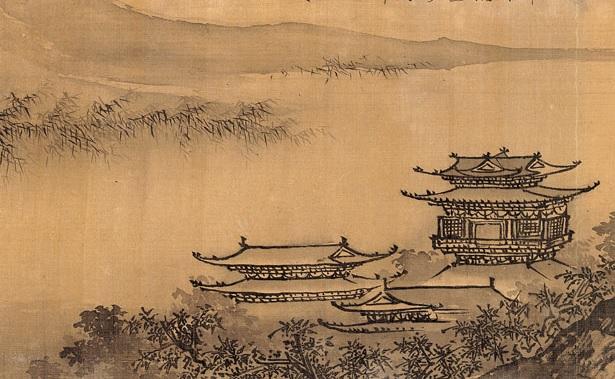For thousands of years, the Five Cardinal Virtues—benevolence, righteousness, courtesy, wisdom, and faith—have guided the Chinese people in governance, family, and individual conduct. First taught by the sage Confucius, they form the cornerstone of traditional Chinese morality.
First in the virtues is benevolence, from the Chinese character “ren.” Consisting of a radical meaning “human” together with the number two, “ren” literally symbolizes interpersonal relations, which should be caring and respectful.
“Ren” is demonstrated in the following folk story, when a wealthy woman extends a helping hand to a stranger—and is blessed for her selfless compassion.
Two Brides
It was the Jiajing era of the Ming Dynasty, in the southern coastal city of Huangyan. One autumn afternoon, a luxuriously decorated marriage litter containing a wealthy bride of a good family was carried out the western gate. As the happy procession headed north, rain began to fall; luckily, a roadside pavilion in the hills offered shelter from the elements.
A second, far shabbier litter, was hastily set down beside the first. The shelter was big enough for only the two litters, so the attendants sought refuge elsewhere. The two young women sat side by side in their bridal seats under the pavilion.





